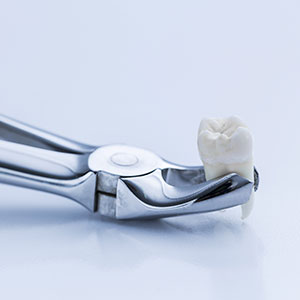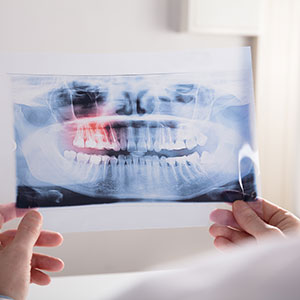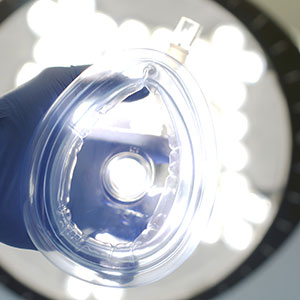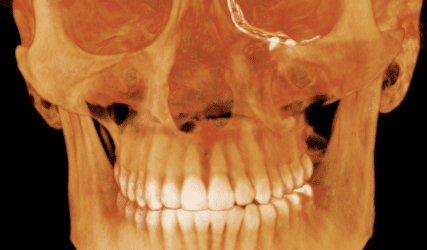Wisdom Teeth
Impacted Wisdom Teeth Removal in Erie, Pa.
Third molars, or wisdom teeth as they are commonly called, typically develop around the age of eighteen. Drs. Armanini, Kolodychak, and Basile, specialize in the removal of third molars, and recommend an evaluation around this age. Many times, your Orthodontist and/or General Dentist will refer you for this care. If your third molars need to be removed, we offer a variety of anesthetic options specifically tailored to each individual. Should you have questions about wisdom teeth removal, we encourage you to reach out to our experienced and knowledgeable staff today!
Reasons for Wisdom Teeth Extraction | Do I Need My Wisdom Teeth Removed?
Wisdom teeth are usually the last teeth to develop, however, problems may occur when there is inadequate space for them to fully erupt. In order to avoid issues such as infection, cyst formation, crowding, and damage to adjacent teeth, impacted wisdom teeth should be evaluated for removal as these issues tend to worsen or occur more frequently when they are not removed prior to the age of 30.
Fortunately, Drs. Armanini, Kolodychak, and Basile, can determine the likelihood of these issues through an oral exam and an x-ray. Being proactive about your wisdom teeth can often result in an easier treatment plan for our patients.

Bony Impaction
The best way to determine whether you would benefit from wisdom tooth removal is to schedule a consultation with one of our doctors. Using a simple x-ray (or CT scan if necessary), we can assess your third molars and discuss your appropriate level of care. Drs. Armanini, Kolodychak, and Basile, are experienced in treating two primary types of impacted teeth:
- Partial Bony Impaction
- Complete Bony Impaction

Comfortable & Safe Anesthesia Options for Oral Surgery in Erie, Pa.
Each of our doctors is capable of administering a number of anesthetic techniques to our patients that can be narrowed down based on the procedure(s) being performed, as well as patient preference for maximum comfort. These anesthesia types include:
- Local Anesthetic, which is typically used for simple procedures and may be used alongside other types of anesthesia if needed. With local anesthesia, a patient is conscious during their procedure.
- Nitrous Oxide Sedation with Local Anesthetic, which utilizes nitrous oxide and oxygen to keep the patient relaxed during their procedure. This is also typically administered for simple procedures, but can be used for more complex and/or lengthy procedures.
- General Anesthesia with Local Anesthetic, which is administered intravenously, renders a patient unconscious during their procedure. It is important to note that patients under general anesthesia will receive additional oxygen while their vitals are monitored by our highly experienced team. This is typically available for most procedures we perform in our office.
At Armanini, Kolodychak, & Basile, L.L.P., we care first and foremost for the safety and comfort of our patients. Questions and concerns regarding anesthesia are common, and we look forward to answering them during your consultation with us.

What to Expect After Wisdom Teeth Removal
The team at Armanini, Kolodychak, & Basile, L.L.P. is dedicated to making your post-operative healing process as seamless as possible. Prior to being discharged, patients will receive an individual set of instructions designed to offer as much comfort as possible following their treatment.
As always, there is the possibility of unexpected results following the extraction of wisdom teeth; most common among these are infection, dry sockets, or delayed healing. Following the post-operative instructions provided to you can greatly reduce the chance of these complications. Should you have any questions after your care, please contact our office at (814) 838-2144.

News & Articles


